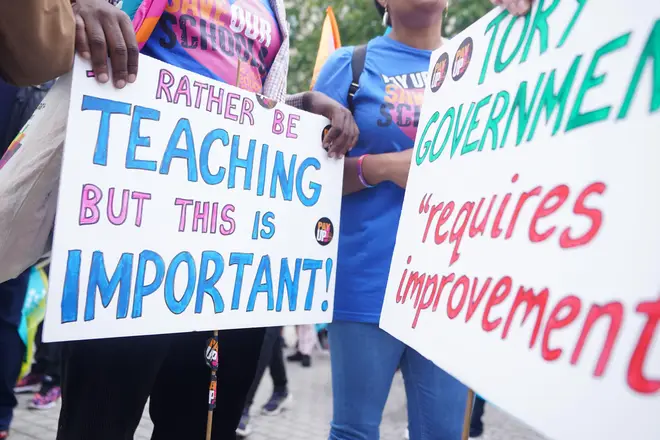
Paul Brand 10am - 12pm
12 July 2023, 10:43 | Updated: 12 July 2023, 10:56

Teachers in England represented by the NASUWT have voted in favour of industrial action in a dispute over pay, the union said.
A huge 88.5% of eligible members of the NASUWT voted to support strike action in a turnout of just over 51%.
A further 94.3% also voted in support of action short of striking.
NASWUT hasn't yet confirmed which dates in September strikes will go ahead.
Two more unions - the NEU and ASCL - are still voting on industrial action.
Last week National Education Union (NEU) members walked out for the seventh time since February, meaning many schools across England were closed either fully or partially.
Like other striking public sector workers, the teachers want a pay rise above the rate of inflation. They also want extra cash to make sure pay rises don't come from school budgets as they stand.
Most state school teachers in England had a 5% pay rise in 2022-23.
The government made a pay offer in April of a one-off payment amounting to £1,000 this school year, followed by a 4.3% rise in the next academic year, and the provision of a task force to help reduce teacher workload.

Tom Swarbrick on how a pay deal for teachers may be funded
Dr Patrick Roach, NASUWT general secretary, said: "We have today written to the government and to employers confirming the prospect for industrial action in schools the length and breadth of the country from this autumn.
"Our members' goodwill has been taken for granted for far too long.
"Excessive workload demands have become so debilitating that we have seen record numbers of teachers and headteachers leaving the profession, or reporting anxiety, work-related stress and self-harm because of the pressures of the job."
The Department for Education said the action would cause disruption to pupils and parents and result in the cancellation of children's end-of-term events.